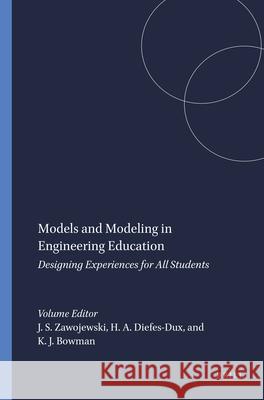Models and Modeling in Engineering Education : Designing Experiences for All Students » książka
Models and Modeling in Engineering Education : Designing Experiences for All Students
ISBN-13: 9789087904029 / Angielski / Miękka / 2008 / 304 str.
Few research-based resources make engagement in engineering education reform and research practical for current and future educators. Yet, engineering educators are under immense pressure to address a wide variety of educational goals that extend well beyond the traditional student learning of engineering science and design. The now familiar ABET Criterion 3 a though k has placed the responsibility squarely on the shoulders of every engineering faculty member to ensure that our graduates have abilities in the areas of problem solving in complex engineering settings, teaming and communication and understandings in the areas of ethics, global and societal impact, and contemporary issues. Engineering educators must also concern themselves with recruitment and retention of a diverse student population. Creating learning experiences and environments that encourage and support the success of all students is a priority for engineering education reform. This book is primarily being written for current and future engineering educators and researchers. The focus is on the design, development, implementation, and study of a special category of open-ended problems - the model-eliciting activity. These are realistic problems with engineering content and contexts designed to tap the strengths of all students while providing hooks to address simultaneously other educational goals. As problem solving is at the heart of engineering education and practice, it is a theme of wide appeal to engineering educators. The aims of this book are to (1) provide engineering faculty with practical tools for creating, implementing, and assessing the use of open-ended problems that meet a variety of educational goals, (2) facilitate future collaborations between engineering and education, (3) forward engineering education as a scholarly discipline by providing a resource with which to inform and teach future educators and researchers. The book describes how incorporating mathematical modeling activities and projects, that are designed to reflect authentic engineering experience, into engineering classes has the potential to enhance and tap the diverse strengths of students who come from a variety of backgrounds. Based on the experience of a cadre of engineering and education professors who were at Purdue University during a major curriculum reform effort, this book provides a case study of the Purdue experience, which in part launched the historical beginning of the Department of Engineering Education, the first program in the United States. The reader will be provided with critical activities and tools designed during the project, and the book will be written in a way to help the reader adapt the work to their own situations.











